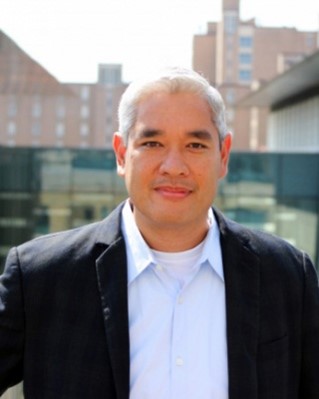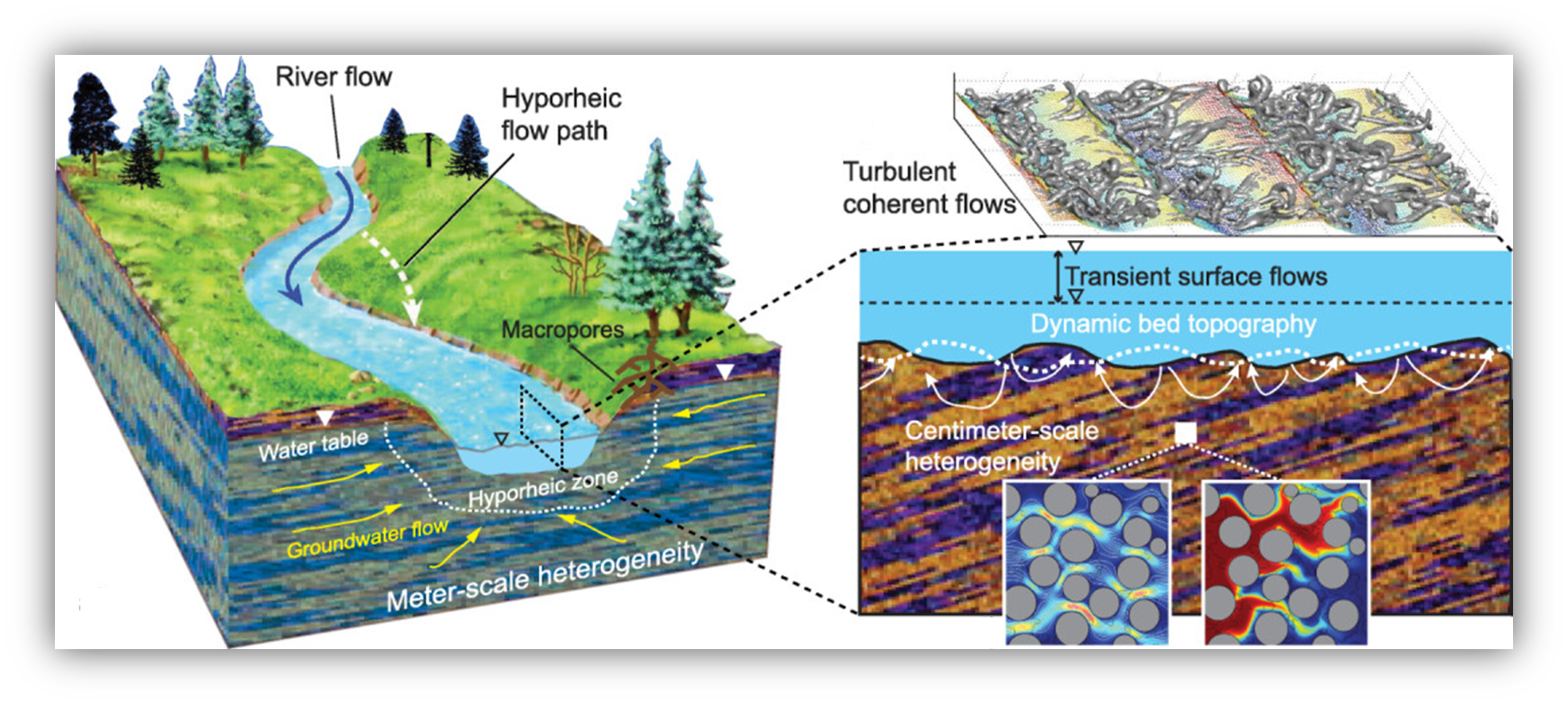Birdsall-Dreiss and LaMoreaux Lecture:
“Hydrobiogeochemistry of terrestrial-aquatic interfaces from pore to continental scales”
Bayani Cardenas
J. Nalle Gregory Regents Professor in Geological Sciences
Website: http://www.jsg.utexas.edu/researcher/bayani_cardenas
Research Group Website: http://www.jsg.utexas.edu/cardenas/
Abstract: The parts of a river corridor - shallow aquifers, alluvium, floodplains, and the river itself - are intricately intertwined. Many important hydrologic and biogeochemical processes take place where the parts meet, which are the sediment adjacent to and below the river called hyporheic zones, and also more broadly referred to as terrestrial-aquatic interfaces. Because of mixing of surface- and groundwater, the hydrobiogeochemical processes at terrestrial-aquatic interfaces are characterized by steep physical and chemical gradients. These processes determine water quality and ecosystem health from the scale of individual pores, to bedforms, to reaches, and eventually integrate to impact watersheds spanning continents. This presentation is a primer and a synthesis of research that explains the mechanics and chemistry of river–hyporheic–aquifer processes from millimeter to megameter scales.
Key contributors: Alec Norman, John Wilson, Adam Kessler, Perran Cook, Matt Kaufman, Lizhi Zheng, John Nowinski, Jesus Gomez-Velez, Jud Harvey, Brian Kiel, and many other collaborators
Major funding sources: Department of Energy (DE-SC0018042) and National Science Foundation (EAR-0836540 and 0955750)
Suggested reading and references: 1, 2, 3, 4
Speaker Biography: M. Bayani Cardenas is a hydrology professor in the Department of Earth and Planetary Sciences of the Jackson School of Geosciences at the University of Texas at Austin. His research seeks to understand flow and transport processes across different hydrologic settings, water quality and quantity problems, and scales, using a combination of theoretical, computational, and observational methods. He received his education from the University of the Philippines, the University of Nebraska, and the New Mexico Institute of Mining and Technology.




